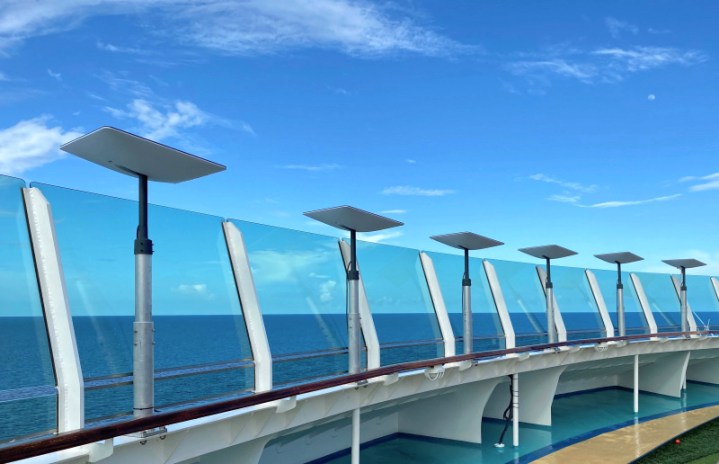Passengers on Royal Caribbean cruise ships will soon be using internet powered by SpaceX’s Starlink satellites.
Royal Caribbean said Starlink will bring “faster and more reliable internet” to its fleet of ships, which also include those operated by Celebrity Cruises and Silversea Cruises.
The cruise operator is the first in the industry to partner with SpaceX for its high-speed, low-latency broadband service.
Following a successful trial of Starlink internet aboard the Royal Caribbean’s Freedom of the Seas ship, the operator says it will start rolling out the service now, and aims to complete the process by the end of March next year.

“Our purpose as a company is to deliver the best vacation experiences to our guests responsibly, and this new offering, which is the biggest public deployment of Starlink’s high-speed internet in the travel industry so far, demonstrates our commitment to that purpose,” Jason Liberty, president and chief executive officer of the Royal Caribbean Group, said in a release shared on Tuesday.
Liberty added that SpaceX’s Starlink service will “improve and enable more high-bandwidth activities like video streaming as well as activities like video calls.”
Jonathan Hofeller, SpaceX vice president of Starlink sales, said the service would allow cruise passengers to “stay connected with a great internet experience.”
And offering the kind of informal take that you’d expect from the boss of SpaceX, Elon Musk tweeted that Royal Caribbean ships were about to get a “kickass internet connection.”
Royal Caribbean’s announcement comes nearly two months after SpaceX launched Starlink Maritime, which expands its service from land-based properties to ships sailing the high seas.
SpaceX is also putting its Starlink internet service in the skies, with Hawaiian Airlines recently revealing it had signed an agreement with Musk’s company to launch the service for its airline passengers in 2023.
SpaceX is using a growing constellation of small satellites to beam Starlink broadband to Earth. To date it has deployed more than 3,000 satellites, which it’s using to serve more than 250,000 customers globally. It also wants to use Starlink to connect unserved or underserved communities around the world.
While it started with residential customers, these recent announcements are an indication of just how big SpaceX is planning to go with Starlink. Indeed, Musk has said previously that Starlink could generate up to $50 billion in annual revenue if it’s able to secure even just a few percent of the global telecommunications market in the coming years.


